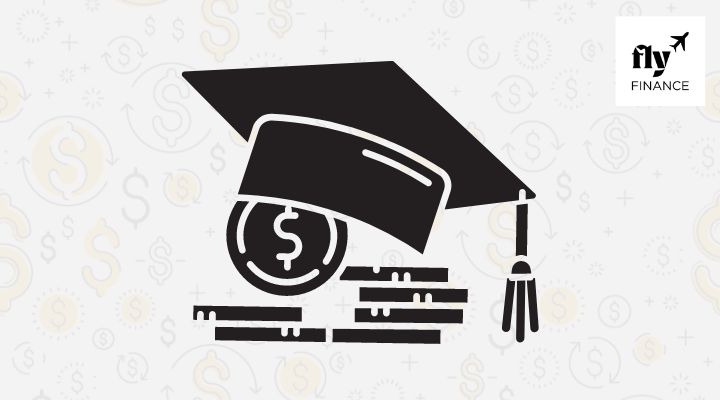Paying off student loans completely should be one of your top priorities if you’re one of the millions of people with educational debt. However, paying off student loans early isn’t always the wisest course of action financially, particularly if you already have high-interest debt from other sources. Before making additional loan payments, weigh the advantages and disadvantages of advancing the payoff date. Here are the advantages and disadvantages of paying off your student loans early. While that’s a wonderful approach in many circumstances, it comes with unforeseen side effects.
| Pros | Cons |
| helps you save money for your regular bills. | fewer resources for emergencies |
| facilitates mortgage qualification | less capital to invest |
| strengthens mental health | Possibility of loan forgiveness |
| improves mental health | Early student loan repayment may deplete your emergency reserve. |
Pros of Paying Off Student Loans Early
You lack the drive to pay off your school loans. The following are the key advantages of paying off student loans quickly:
Helps you save Money for your regular bills.
Once you have paid off your debt, you won’t have to worry about making monthly payments or paying interest, which will free up cash you can use for your regular needs and have extra to invest in, put aside for retirement, or spend on indulgences.
Also, Read: How to Pay Off Student Loan
Facilitates Mortgage Qualification
Your debt-to-income (DTI) ratio, which the lender determines when you apply for a mortgage and is determined by dividing your monthly debt payments by your gross monthly income. To evaluate how much of a mortgage you can comfortably afford, lenders utilize the DTI. Depending on the lender and the kind of mortgage, the DTI threshold for the majority of lenders ranges between 36% and 43%. If your DTI is already higher than those limits, you might not be granted a loan of any type. By reducing your DTI, eliminating student loans can make it simpler for you to purchase the property you want.
Strengthens Mental Health
Paying off student debts early is often not motivated by math or reasoning for many borrowers. It is motivated by feelings. Paying off college debts might enhance your mental health because debt can make stress and anxiety symptoms worse. Getting rid of your debt can help you feel better about your financial situation if you feel burdened by it. Many borrowers are not typically encouraged to pay off their college loans early by logic or maths. It is driven by emotions. Your mental health may be improved by paying off college debt because stress and anxiety symptoms can be exacerbated by debt. If you feel burdened by your debt, paying it off can make you feel better about your financial condition.
Cons of Paying Off Student Loans Early
It’s always a good thing to pay off debt, right? Wrong. Occasionally, it pays to keep your loans in place. The following are the primary disadvantages of paying off your student loan early:
Fewer Resources for Emergencies
It might be counterproductive to prioritize student loans above a rainy day fund in the long run. You’ll need money to cover such costs if you lose your work, are forced into a furlough, or experience a medical emergency. You could have to take out high-interest loans or utilize credit cards to cover those unforeseen expenses if you neglected to accumulate an emergency fund because you were too preoccupied with paying off debt.
Also, Read: Best Ways to Use Credit Cards for College Students
Less Capital to Invest
Each dollar you spend on student debt prevents you from investing that money. In some circumstances, investing could bring in a higher return than paying off debt early. Without accounting for inflation, the US stock market has grown by around 10% annually during the past 100 years. You’re probably better off paying the lowest amount due on your student loans and investing the surplus cash if your interest rate is 6% or less.
Possibility of Loan Forgiveness
Just in case President Biden cancels student loans at some point in the future, several student loan specialists advise keeping your federal student loans intact. If that occurs and you have already repaid your student loans, you are out of luck. You might still be able to qualify for Public Service Loan Forgiveness (PSLF), Income-Driven Repayment (IDR) Forgiveness, or Career-Specific Loan Forgiveness even if President Biden does not pass comprehensive loan cancellation.
Early Student loan Repayment may deplete your Emergency Reserve.
When everything is going smoothly, saving for an emergency fund may not seem like a necessity, but everything may go wrong in only a minute or even less. Your top aim should be to save money for an emergency fund, even if it means accruing a little more interest on your student loan.
Also, Read: How to Manage Money While Studying Abroad?
FAQs
Ans. Student loans frequently have interest rates that are significantly lower than other private loans. If you pay off your low-interest loans early and then borrow money again, your interest rate will be significantly higher. In this case, early student loan repayment will cost you money.
Ans. Pay less over the course of the loan’s life: Since interest is charged on student loans, like most other types of debt, it is less expensive if you pay them off early. In the long term, you’ll pay less money because the debt has less time to amass interest.
Ans. Although paying off your student debts all at once may be financially advantageous, it isn’t necessarily the wisest course of action. The money might be used to save for retirement, pay down debt at a higher interest rate, or provide the security of a sizable emergency fund.
This was all about paying off student loans early, if you also have loan related query get in touch with Leverage Edu our Finance Experts and we will help with you same.





























